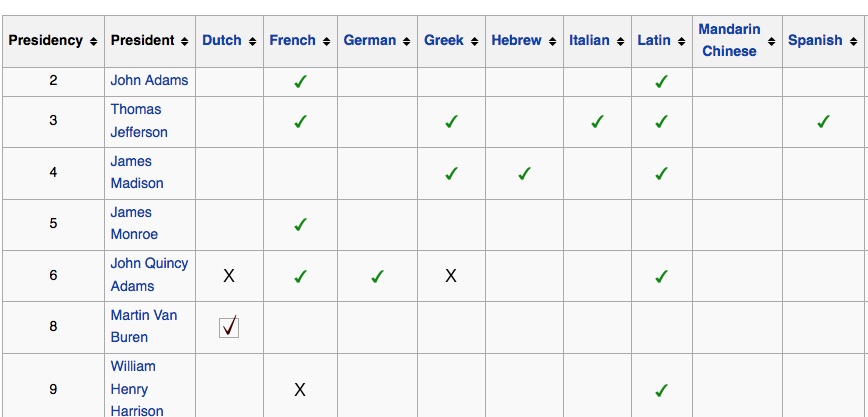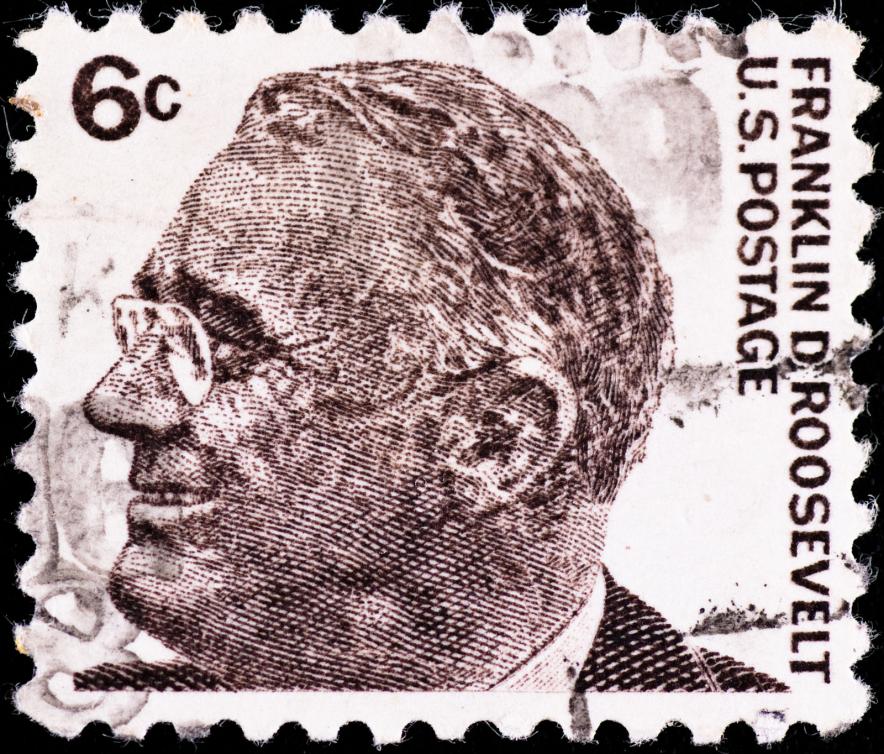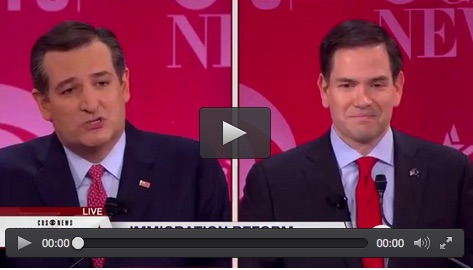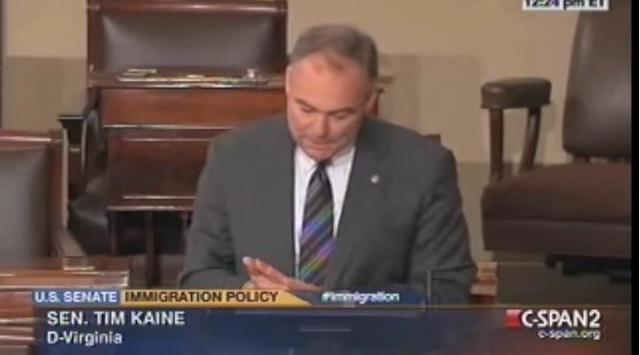U.S. Presidents and Foreign Languages
 Four years ago, we published a post titled Wonks, Foreign Languages and Presidential Politics.
Four years ago, we published a post titled Wonks, Foreign Languages and Presidential Politics.
In it we linked the NPR opinion article by Stephen M. Walt, the Robert and Renee Belfer Professor of International Affairs at the Harvard Kennedy School of Government.
In rereading our post and Professor Walt's full article, which had appeared in www.foreignpolicy.com on August 23, 2012 as The Top 10 Things that Would-Be Foreign-Policy Wonks Should study, we realize that Professor Walt was right in labeling “History” as #1.
In Professor Walt's words:
“1. History. Trying to understand international affairs without  knowing history is like trying to cook without knowing the difference between flour and flounder.
knowing history is like trying to cook without knowing the difference between flour and flounder.
Not only does history provide the laboratory in which our basic theories must be tested, it shapes the narratives different peoples tell themselves about how they came to their present circumstances and how they regard their relationship to others.
How could one hope to understand the Middle East without knowing about the Ottoman Empire, the impact of colonialism, the role of Islam, the influence of European anti-Semitism and Zionism, or the part played by the Cold War?
Similarly, how could one grasp the current complexities in Asia without understanding the prior relations between these nations and the different ways that Chinese, Vietnamese, Koreans, Japanese, Pashtuns, Hindus, Muslims, and others understand and explain past events?
But don’t just memorize a lot of names and dates: Seek out teachers who can help you think about the past in sophisticated ways.
Among other things, it’s useful to know how other societies see the past even if you don’t agree with their interpretation, so make sure you read histories written by citizens of other countries.
And if you’re studying in the United States, don’t just study 'Western Civilization.' The world is a lot bigger than that.”
How could one argue with the above advice?
In the 2016 Presidential elections, U.S. voters will also decide whether knowing history and understanding the complexities of the modern world are important. Their choice may well affect many foreign countries and shape our future.
The Language Skills of U.S. Presidents
 In reviewing this Wikipedia entry (see excerpt of Wiki table, left) and overview of the language skills of the U.S. Presidents, it becomes clear that the early U.S. Presidents from John Adams (#2) to John Quincy Adams (#6) had superior foreign language skills to most of their successors.
In reviewing this Wikipedia entry (see excerpt of Wiki table, left) and overview of the language skills of the U.S. Presidents, it becomes clear that the early U.S. Presidents from John Adams (#2) to John Quincy Adams (#6) had superior foreign language skills to most of their successors.
The indicated language skills in the Wikipedia table may not all be completely accurate. For example, by his own account, (as he wrote in an April 12, 1817 letter) Thomas Jefferson was able to read “Greek, Latin, French, Italian, Spanish, and English of course, with something of it's radix the Anglo-Saxon.”
Although he learned French as a student, he only acquired some fluency after spending time in France.
Thomas Jefferson and Spanish
Jefferson already recognized, however, that speaking Spanish  would be beneficial to U.S. politicians in the future. In 1785 he wrote in a letter to his nephew Peter Carr:
would be beneficial to U.S. politicians in the future. In 1785 he wrote in a letter to his nephew Peter Carr:
“...Our future connection with Spain renders that [Spanish] the most necessary of the modern languages, after the French. When you become a public man, you may have occasion for it, and the circumstance of your possessing that language, may give you a preference over other candidates.”
In this excerpt from the Thomas Jefferson Foundation about Jefferson's French language quotes, you can also read how he changed his mind about his nephew Peter Carr learning Spanish instead of Italian.
1785 August 19. (Jefferson to Walker Maury). “My intention had been that he [Peter Carr] should learn French and Italian, of the modern languages. But the latter must be given up (for the present at least) and Spanish substituted in it’s place.”
Foreign Languages in recent Presidential Campaigns
 It has been 84 years since the U.S. elected a President who spoke another language than English fluently. Franklin Roosevelt was taught French and German from childhood on.
It has been 84 years since the U.S. elected a President who spoke another language than English fluently. Franklin Roosevelt was taught French and German from childhood on.
He even went to school briefly in Bad Nauheim, Germany - the town, in which I grew up. See my post: Where “Bad” does not mean bad...
(While Presidents Carter and George W. Bush speak some Spanish, Clinton some German, and Obama some Indonesian, they are certainly not fluent in those languages.)
Some of you may remember that John Kerry downplayed his knowledge of French in 2004.
President Obama got a lot of flak in 2008 when he regretted:
“I don't speak a foreign language. It's embarrassing ... It's embarrassing when Europeans come over here, they all speak English, they speak French, they speak German. And then we go over to Europe and all we can say is merci beaucoup, right?” (CBS News 7/11/2008)
In 2012, a candidate for the Republican nomination, Jon Huntsman, had been U.S. ambassador to China. He was attacked for speaking fluent Mandarin, called “China Jon” and “Manchurian candidate,” implying that voters should be suspicious of him.
And Mitt Romney quickly learned that speaking French was no advantage either.
Foreign Languages in the 2016 Presidential Campaign
Republicans' Candidates
Spanish was the one foreign language that acquired some prominence in the Republican primaries.
There are several YouTube videos ob Jeb Bush doing interviews in Spanish, showing that he is quite fluent in Spanish.
Jeb Bush or Senator Marco Rubio (who grew up bilingual) would have been the first U.S. President with a command of Spanish beyond a high-school level. (Senator Ted Cruz also speaks some Spanish.)
the first U.S. President with a command of Spanish beyond a high-school level. (Senator Ted Cruz also speaks some Spanish.)
There was a somewhat funny exchange during one of the Republican debates when Marco Rubio stated that Ted Cruz did not speak Spanish, and Cruz challenged him in Spanish.
This February 14, 2016 article in The Washington Post, titled What that Cruz-Rubio ‘He doesn’t speak Spanish’ thing was about, provides an interesting perspective on this event and opens with the following:
“There is a dark period in American history. It's one to which some Americans seem eager to return. It's one when people were barred, shamed or even punished for speaking languages other than English. That was especially true outside the home.
Speaking a foreign language or limited English was very widely believed to be an indicator of suspect national loyalty, limited intelligence or ability. Speaking a foreign language simply was not regarded as a useful skill.”
The Republican Candidate, Donald Trump, doesn't speak (or read) a foreign language, which makes him somewhat of an exception in his family:
- His mother, Maryanne, was reportedly from a village on the Isle of Lewis and spoke Scottish Gaelic as her first language.
- His paternal grandparents were German-born, but it's unclear whether his father actually spoke German.
- His first wife, Ivana, was Czech; his current wife, Melania is Slovenian and most of his children are multilingual.
Trump's Vice-President choice Mike Pence does not seem to speak another language, either.
Democrats' Candidates
Bernie Sanders does not speak any foreign languages, but he learned enough Spanish to confirm in one of his Spanish campaign ads that he “approves this message.”
A 2008 New York Times article indicates that Hillary Clinton does not speak any foreign languages. (Visiting over 90 countries doesn't do it; and whatever language courses she may have taken at Wellesley apparently had no lasting effect!)
 This leaves Tim Kaine, Clinton's choice for Vice President as the only remaining candidate in 2016 who speaks a second language.
This leaves Tim Kaine, Clinton's choice for Vice President as the only remaining candidate in 2016 who speaks a second language.
He acquired his fluency in Spanish, while working and teaching in Honduras when he took a year off from his studies.
In 2013 Senator Tim Kaine made history by giving a speech in the Senate (see clip above) in support of immigration reform entirely in Spanish. It was an impressive performance by a politician who did not grow up bilingual, but learned Spanish as a young man.
It's not surprising that Spanish has risen in importance in the U.S.: The U.S. Census estimates the Hispanic population in 2014 as 55 million, or 17% of the nation's total population.
By 2060, the Hispanic population in the U.S. is projected to increase to 119 million or nearly 29% of the total population.
Will 2016 be the year when speaking Spanish as well as English will not be seen as a disadvantage for politicians?
The Importance of Foreign Languages
Professor Walt had listed “Foreign Languages” as #3. Here is his reasoning:
“If you grew up outside the United States and are headed for college, you probably already speak more than one language.
If you're an American, alas, you probably don't. You should.
I know that everyone is learning English these days, but learning at least one foreign language provides a window into another culture that you can't get any other way, and also provides a sense of mastery and insight that is hard to achieve otherwise.
I'm not particularly good at languages, but I'd gladly trade my mediocre abilities in French and German for real fluency in one of them (or many others). Don't make my mistake: get to the language lab and acquire some real skills.”
I would just add, that if you want to speak fluently, but can't live for a while in the country where your target language is spoken, don't have a partner with whom to practice, or don't have access to a “language lab,” you have more options today:
Join one of the local language groups, online language exchanges, immersion sites like fluentu, get a tutor on italki, etc. or practice on other similar online sites.
There is no way around it: To become fluent in a foreign language you have to start SPEAKING it.
Thomas Jefferson would certainly have agreed...
Bio: Peter Rettig is the co-founder of Gamesforlanguage.com. He's a lifelong language learner, growing up in Austria, Germany, and Switzerland. You can follow him on Facebook, Twitter and Instagram, and leave any comments with contact.
